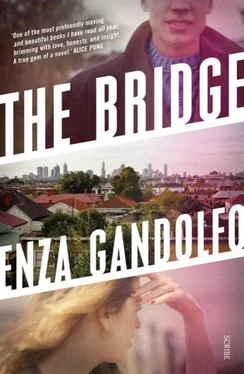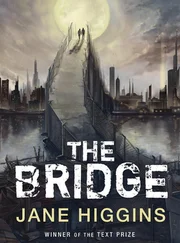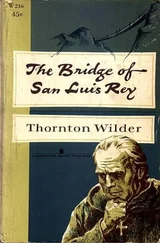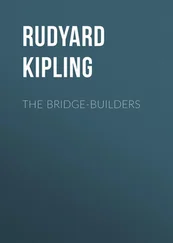Once a week she went to the police station, early in the morning when there weren’t many people around. She signed in, and they rarely asked her questions. She thought about her mother and her grandmother, whose text messages and voicemails she answered with brief replies: I’m fine, all good. Yes, I am eating — looking after myself . And she thought about prison and what her life might be like after that. Her mood varied from day to day. There were times when she could walk to the water and smile at the joggers and dog walkers, at the workman building and renovating houses on the Esplanade, go for a swim in the bay and think only about Portarlington and her present life — doing her laundry, updating the specials board at the restaurant, helping Sue with pulling some ivy off the back fence.
‘When you’re young,’ Sue had said to her one day, ‘you think about all the things you want to do. To achieve. You want to be famous. Or you want to change the world. But the years go by and the things you haven’t done don’t matter anymore. You’re happy to plant a garden and watch it grow.’
There were some days when Jo convinced herself that she could go on living, and go on living this life, a day-to-day existence, like so many of the people around her. Granted, most of them were retired, but here it seemed possible to work, to garden, to walk, to eat and sleep, to repeat the whole thing again the next day and the day after. To live without aspiring to anything in particular, without planning for the future. But there were also the mornings after sleepless nights when Ash’s voice invaded and wouldn’t stop — You can’t keep pretending to be me. You’ve stolen my name. How long are you going to keep it up? — when she thought about suicide again. When the desire not to be alive was urgent, and she stood at the end of the pier and imagined disappearing into the blue water, sinking into a peaceful, dreamless sleep. On those days, work provided relief. Often she worked both the lunch and the dinner shift, and volunteered to help clean up in the kitchen, to close up at the end of the night.
Jo and Justin worked the same shifts, so they often ate lunch together in the kitchen or on the balcony. A couple of times during her breaks, when she crossed the road and sat on the grass overlooking the bay, he came across and sat with her. They talked about Portarlington, mainly. Justin told her the bay produced most of the mussels consumed in the state, and that mussels had grown in these waters for centuries — there was lots of evidence that long before white settlement, the Wathaurong people fished here for mussels as well as other fish. Jo had seen people lined up to buy them off the boats at the end of the pier. At The George, mussels were always on the menu.
Justin told her the story of William Buckley, the escaped convict who lived around the area with the Wathaurong people for thirty-two years. He told her about the vineyards and the olive groves. He talked about his love of fishing. He told her he’d moved back to Portarlington after his mother died, to keep his father company. But she could see how connected he was to the place, to the preservation of its environment, to the acknowledgement of its Indigenous history. He was not an activist like Ian Williams: this was his home, where he belonged, and he would simply do his best to take care of it. Around him she found herself noticing the shape of the bay, the colour of the water, the species of trees.
Justin felt solid and comfortable. He did ask her personal questions, but he didn’t press her when she didn’t answer. She told him about Grandpa Tom and his stories. She told him about her house in Yarraville, across the road from the oil terminal, down the road from the refineries, and her fear that her mother would sell it and move and the house would no longer be theirs.
‘Really?’ he said. ‘I lived in the west when I lived in Melbourne, in Sunshine. Most people couldn’t wait to get out. Don’t you worry about living so close to the refineries?’
‘No,’ she told him. ‘You get used to it.’
From their vantage point, they could see the beach populated by shade tents and domes, by sunbathers and swimmers, by squealing children and the rumble of jetski motors and fishing boats.
‘When I was a kid, I used to point to the signs — Dangerous , Explosive — and my mother would avoid explaining, try to change the subject, until one day, she was frustrated with my questions, and she said, “It means the whole place could blow up. One big fireball.”’
‘Gosh, did it freak you out?’ Justin asked.
‘It must’ve. I remember worrying we’d catch fire and our house would burn down. Mum tried to take it back, and said, “We’ll run like the wind until we’re far, far away.” But after that, I had these repeating fire dreams: great walls of flames roaring towards the house.’
‘There was an explosion once, on Coode Island,’ Justin said.
‘I didn’t find out about the Coode Island fire until I was older. Apparently the smoke choked the neighbourhood and people were evacuated from their houses and schools and businesses. I was a baby when it happened and we were living in Braybrook. Mum said my grandfather was evacuated. He spent a couple of days on our couch in the flat. She told me Grandpa Tom used to say, “Lucky the wind was blowing towards the city that day, towards those rich bastards.”’
All through her childhood and into adolescence, Jo had dreamt about the tanks exploding, and the flames chasing her and her mother. Often in these dreams she ran, exhausted and breathless, not knowing whether they would make it, whether they would escape, whether the house would survive. When her mother told her about the actual fire, those dreams stopped. She’d told Ash about the dreams and their sudden departure. Ash had laughed. ‘My dreams are set in forests or deserts, places I haven’t been, beautiful places. I can’t believe you, anxious even in your sleep.’
‘Portarlington must be a big change,’ Justin said.
‘It is, and I know it sounds strange to you, but I love our house and I miss it.’
‘So why did you leave?’
These were the sorts of questions she couldn’t answer. If she did, she wouldn’t be able to stay. She became adept at changing the conversation, at steering it in other directions.
Jo regretted changing her name to Ashleigh. It was a stupid, spur-of-the-moment mistake. She lived with the dread of Sue and Laurie and Justin finding out. If a cop walked past the restaurant or if patron seemed vaguely familiar, it sent her into a panic. But she liked the way Ashleigh, the name, transformed her into someone else. Not Ash, but also not Jo. It was liberating. Ashleigh wasn’t a killer. Ashleigh could live. Ashleigh could laugh. Ashleigh could be funny. Ashleigh deserved to be happy, to be loved. At school Jo had avoided taking drama. Now she was playing at being Ashleigh, like an actor in a play, she could see the attraction. To be given a name, a personality, a life that isn’t yours, and to be allowed to become that person. There were moments of exhilaration, when the world was open with possibility.
If only she’d chosen another name — she could’ve become Melissa or Annabelle or Chelsea or Jodie — then maybe Ash would’ve stopped plaguing her, stopped occupying her dreams, taunting her with nightmares.
You’re not me.
I know.
You can’t take over my life.
I know.
My family won’t let you.
I know.
Well, stop using my name.
Jo volunteered to work Christmas Day. Sue and Laurie were in Melbourne, having Christmas with Laurie’s sister. A number of the permanent staff wanted the day off, so no one seemed concerned that Jo wouldn’t be spending time with family.
Читать дальше












